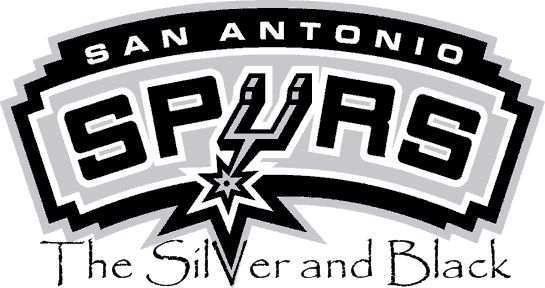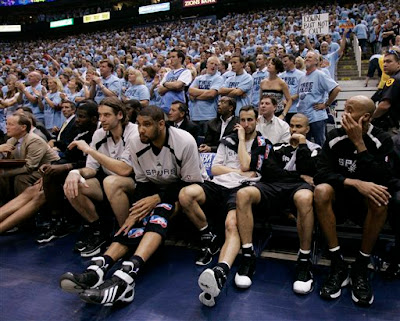
Article originally published at RealGM.com.
A New Style Of Jazz
Authored by Elliot Cole - 28th May, 2007 - 3:19 pm
The relentless pick and rolls, the tough guard screens, the constant physicality…the Utah Jazz are not a team that relies on solo performances to win games. Their system, which Coach Jerry Sloan has played to the tune of two finals appearances and 1035 regular season wins, is based on fundamentals, precision, and effort. It’s structured offense at its finest, and as long as the band is in rhythm, the Jazz can make some beautiful music on the court.
Deron Williams, however, seems to like the occasional solo.
The play of Williams and his 30.3 PPG through the first three games of the Western Conference Finals has almost single-handedly given the Jazz life against the once dominant Spurs. With role players like Mehmet Okur (7ppg in the series) and Andrei Kirilenko (8ppg) stifled by the suffocating Spurs defense, Williams has become something that Utah fans haven’t seen in a while: a one man show.
That’s not to say he isn’t distributing and involving his teammates (as made evident by his 9 assists a game through the first three games of the series), but rather than he has become the focal point of the Jazz offense. Whereas most Jazz point guards have been role players in the offense (even Stockton was never asked to dominate a game), Williams has morphed into a legitimate star, able to improvise his way to the rim or to dish the ball off to his teammates. He has a skill set that Sloan has never had before at the point: size, speed, athleticism, and the ability to finish amongst bigger bodies. He has the complete package, and even defensive stalwart Bruce Bowen has failed to shut him down.
Did anyone project the former Illinois star to be this good, this fast? When the Jazz selected Williams with the third overall pick of the 2005 NBA draft, he was regarded as a “system player”, a physical point guard that would fit well into Sloan’s style. Few projected him to be a potential All-Star, and even fewer expected him to be as good as fourth pick and Hornets guard Chris Paul.
“It’s hard to imagine Williams being anything greater than a 6th man or a fringe starter,” said one draft guru, who will remain unnamed (try Google, if you’re greedy). Others questioned his speed, weight, and athleticism.
Looks like those questions have been answered.
As it turns out, Deron Williams could turn out to be the best player in the 2005 draft class. Sure, Paul is special, and 19 year old Laker center Andrew Bynum has a lot of room to improve, but few players have the all the tools at their disposal the way Williams does. Operating in the structured Jazz offense, he has blossomed as a playmaker, clutch scorer, and go-to-guy. While Carlos Boozer may be the engine of the Jazz, Williams is the guy they count on to deliver with the game on the line.
With a trip to the Finals on the line, the Jazz will continue their structured play, but the improv show of Williams is become more and more evident, especially in his dominance of the ball in the half court sets. As the Jazz continue the attempt to come back and surpass the more experienced and savvier Spurs, Deron Williams may have to face a new sound: the expectations of being a star.
Elliot Cole is a contributor for RealGM and blogs at http://www.thesilverandblack.blogspot.com. Emails are encouraged at elliot.cole@yahoo.com












